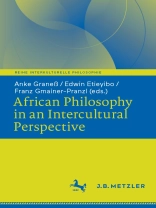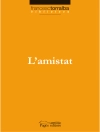African philosophy under the specific conditions of a colonial and postcolonial world is – at least since the 20th century if not even earlier – inherently intercultural. The aim and target of the volume is to reveal, interrogate and analyse the intercultural dimension in African philosophy, and to critically interrogate the project of an intercultural philosophy from an African perspective. This volume is the first publication that explicitly discusses African philosophy as a challenge to the project of intercultural philosophy.
Inhoudsopgave
Introduction.- Greeting from ISAPS President.- Section I: Intercultural Discourses and Engagements.- 1. Léopold Sédar Senghor—African Philosophy and the Challenge of Interculturalism.- 2. Bantu Philosophy and the Problem of Religion in Intercultural Philosophy Today.- 3. Piety and Conduct: The Case of Confucianism and African Philosophy.- 4. Layers of Heinz Kimmerle’s Intercultural Philosophy.- 5. From Local to Global: Rethinking the Dynamics of African Philosophy from an Intercultural Perspective.- Section II: Theory and Practice: South Africa.- 6. The Revolutionary Impetus.- 7. Reflections on a Decolonised Philosophy Curriculum for South Africa in the Light of the #Fees Must Fall Movement.- 8. ‘#Facts Must Fall’?—African Philosophy in a Post-truth World.- 9. Towards a Ludic Ubuntu Ethic.- Section III: Philosophical Challenges in Africa Today.- 10. Against Silencing: Redefining Women’s Voices in Islam with Reference to the Life and Works of Aisha Abd Al Rahman (Bint Al Shati).- 11. Water Ethics.- 12. African Environmental Intuitionism and the Obligation to Posterity.- 13. Philosophy in the Global Age: Towards the Conversation of Humankind.
Over de auteur
Dr. Anke Graneß lehrt Philosophie an der Universität Hildesheim.
Prof. Dr. Edwin E. Etieyibo lehrt Philosophie an der University of the Witwatersrand, Johannesburg, Südafrika.
Prof. Dr. Franz Gmainer-Pranzl ist kath. Theologe und Philosoph an der Universität Salzburg.












